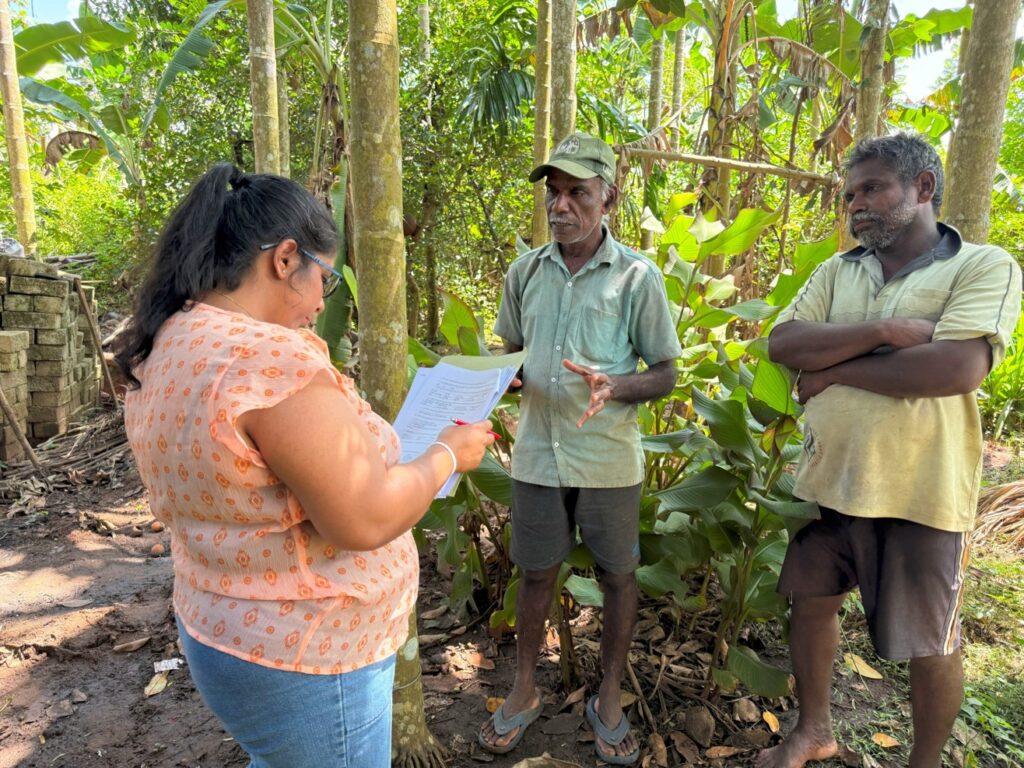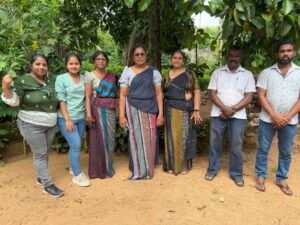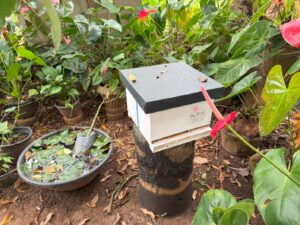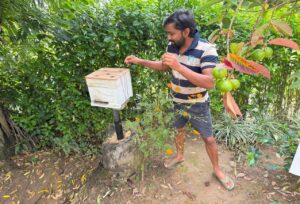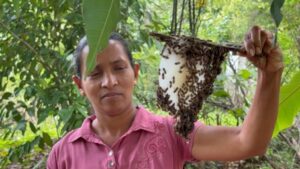How can beekeeping improve livelihoods in rural Sri Lanka? This is a focus of the SIANI expert group on pollination and also of two master students from the Swedish University of Agricultural Sciences (SLU). Abhishta Pamodi Amararathna and W.A.Ruwani Nisansala Weerasinghe recently visited living labs connected to the expert group as part of field work for their theses. Here they share their main insights.
On 20 May, it is time to celebrate World Bee Day, this year with the theme “Bee inspired by nature to nourish us all”. Abhishta Pamodi Amararathna and W.A.Ruwani Nisansala Weerasinghe believe this is an important day, not least for their native Sri Lanka where beekeepers face growing challenges. While studying for a master’s degree at SLU in Sweden, they got the opportunity to conduct field work in Sri Lanka in collaboration with the SIANI expert group, which is led by SLU. Abhishta is a student of the Food and Landscape programme while Ruwani studies Agroecology at SLU Alnarp.
In March and April, Abhishta and Ruwani visited beekeepers to understand their situation. They also met government officers to learn more about actions they can take to minimize climatic risks and improve beekeeping practices. We asked them to share impressions from their field work.
